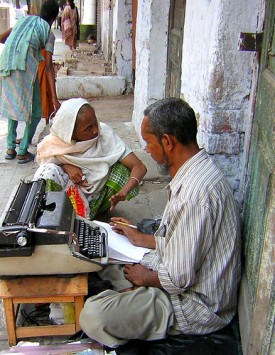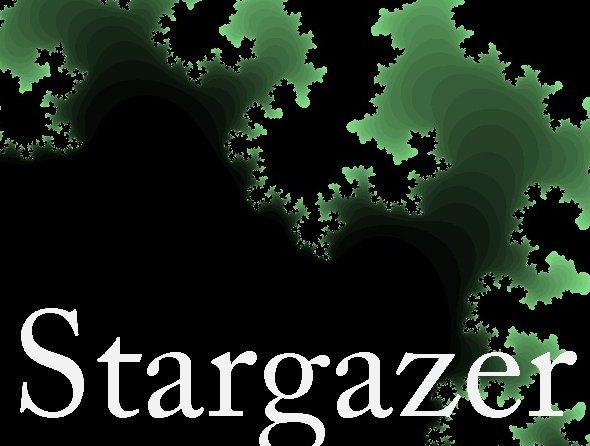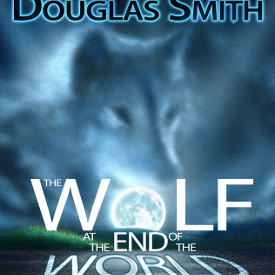 As we enter a new year in writing and publishing, I thought I’d review some interesting statistics and observed trends over 2014 made by those poised well in the industry.
As we enter a new year in writing and publishing, I thought I’d review some interesting statistics and observed trends over 2014 made by those poised well in the industry.
In July 2014, Publishers Weekly revealed some interesting statistics from various surveys and studies worth considering.
The article was based on two recent surveys: one by best selling indie author Hugh Howey; and the other by Mark Coker, founder of e-book distributor Smashwords.
Publishers Weekly cited Hugh Howey’s Author Earnings Report, in which he claimed that “the report comes to the conclusion that the indie movement in literature is not a blip and not a gold rush.” It is definitely here to stay, said Publishers Weekly. Here’s what they summarized:
- The Big Five traditional publishers now account for only 16% of the e-books on Amazon’s bestseller lists.
- Self-published books now represent 31% of e-book sales on Amazon’s Kindle Store.
- Indie authors are earning nearly 40% of the e-book dollars going to authors.
- Self-published authors are “dominating traditionally published authors” in sci-fi/fantasy, mystery/thriller, and romance genres but — and here is the surprise — they are also taking “significant market share in all genres.
Publishers Weekly contended that “what is clear is that strong indie sales will continue and indie books are now a significant and permanent part of the book publishing landscape.”
Coker’s survey revealed that the 99¢ ebook was no longer “the sweet spot” for e-book pricing. In his 2014 survey, Coker determined from aggregated retail and library sales data of Smashwords books, that:
- $2.99 and $3.99 are currently the pricing sweet spots for most e-book bestsellers. In general, authors who price their books modestly earn more than those whose average price is higher, but 99¢ is “no longer the path to riches.”
- Readers prefer longer e-books. In fact, bestselling books tend to be over 100,000 words.
- Series books outsell stand alone books — but series books under 50,000 words are at a sales disadvantage.
- “Free” still works as a marketing tool, especially when an author offers the first book in a series for free, but it is much less effective than before — primarily because so many authors are taking advantage of it.
- Pre-orders give authors a sales advantage. “I think pre-orders today are where free was five years ago,” says Coker. “The first authors to effectively utilize pre-orders will gain the most advantage, just as the first authors to enter new distribution channels gain the most advantage,” he says.
- Non-fiction earns more at higher prices. “Non-fiction buyers are less price sensitive,” says Coker. “It appears as if most non-fiction authors are underpricing their works, and they should experiment with higher prices,” he says.
Coker is quick to point out that this analysis is based on his own interpretation of the findings, and should only be used to provide authors with possible clues to help them make informed decisions about how to market their own unique books.
In an excellent article, summarizing 2014, award-winning author Kristine Kathryn Rusch summarizes what indie writers learned in 2014. She prefers to use the terms indie-writer and indie-publishing over self-publishing, “because so many writers who are not with traditional publishers have started their own presses. It’s not accurate to lump all writers who are not following the traditional route into the self-publishing basket any longer, if it ever was.” This is an interesting acknowledgement and considers a movement by established authors toward a different publishing model, including hybrid publishing.
Rusch’s rather pithy article suggests that writing and publishing “is hard”, no matter what model you use. She adds that if you don’t learn to love the business side of the industry, “self-publishing can be a soul-sucking experience.” Rusch is quick to add that business destroys the dreams of many writers. “If you don’t learn to love business, you’ll get destroyed in traditional publishing. It’ll just take ten years, where in self-publishing, it’ll take less time.”
Read her section entitled “Achieving Real Success is Hard” for an insightful and candid study of “success” in writing and publishing.
“We all measure success differently, and we should know what it is before we start publishing. But most writers don’t. Success is finishing a novel (check). Success is getting that novel published (check). Success is getting good reviews (check). Success is getting paid for that novel. (check) Success is making a living. (um, what?)”
Read Rusch’s section entitled “The Gold Rush is Over” for an excellent reality-check of the indie publishing industry.
“The days of slapping something up and making a lot of sales were gone by the end of 2010. But the rumors persisted and a lot of people got into indie publishing expecting to get rich…You are not entitled to fame and riches just because you published a book.”
In his blog post of November 2014, Mark Coker said:
“The gravy train of exponential sales growth is over. Indies have hit a brick wall and are scrambling to make sense of it. … Some authors are considering quitting. It’s heartbreaking to hear this, but I’m not surprised either. When authors hit hard times, sometimes the reasons to quit seem to outnumber the reasons to power on. Often these voices come from friends and family who admire our authorship but question the financial sensibility of it all.”
To Coker’s comment Rusch adds, “I’m pretty sure more writers quit than survived publishing in 2014, but that’s because more writers always quit than survive. As I said above, the entire profession is hard, and for those people who want to get by without working hard, this profession is not for them.”
Rusch sums up, again rather pithily, eight things indie writers learned (or should have learned) in 2014:
- Gaming the system is impossible: e.g., “every time we figure out how Amazon’s algorithm works, Amazon changes it”; “free doesn’t help me sell my books any more”; 99cents doesn’t help me sell my books any more”; “the tags are gone”; I can’t seem to get enough reviews”; “now when I post on social media, no one responds”—trying to milk the system doesn’t work for the writer because the system is geared for the customer, not the writer—and it’s always a step ahead of you…
- Amazon doesn’t love you: Kindle Unlimited? It isn’t about helping its writers; it is about helping its customers.
- No one loves you: writers are not entitled to have their books on a shelf, virtual or real.
- Your readers don’t even love you (all the time): “you don’t collect and hoard readers; readers can collect and hoard books. It doesn’t work the other way around,” says Rusch.
- Sales based on price no longer work: “even the most denial-filled indie writers are starting to figure out that just because their books are cheap, it doesn’t mean readers will pick up that book,” says Rusch.
- Running with the big dogs is hard: “Now that the last thing that differentiated traditional publishing from indie—price— has leveled out, indies discovered in 2014 that they’re no longer competing with each other. They’re competing with traditionally published books, including long-term bestsellers,” says Rusch. As Blake says, “Pro basketball players don’t tell themselves that they don’t have to be all that great because there are plenty of mediocre players.”
- There is no status quo: “Working in the arts means accepting constant change. Constant change… One of the stupidest gambits I’ve heard from writers in recent years comes from the indie world. Apparently, writers are now searching key words on Amazon bestseller lists—and writing books based on those key words. Oh, heavens, folks. The Amazon bestseller lists are a fraction of the market in the first place, and in the second, they only reflect what sells well now. What will sell well next Christmas is anyone’s guess—and generally speaking, anyone will be wrong… All these gamings and gambits and strategies are based on status-quo thinking,” says Rusch.
- There is such a thing as an Indie Midlist Career: many indie writers are finding that they can earn a living writing, essentially earning out what they earned working for someone else. Indie authors are indeed quitting their day jobs, understanding the financial value of the artistic freedom that indie writing gives us. This, Rusch shares, “is what the self-publishing revolution has brought us.” Not some get rich-quick thing; but the means to do what we love.
So, what’s the take home message here for established and particularly new budding indie authors and publishers?
Writing and publishing is a collaborative effort. Take pride in your work. Embrace your passion for writing. Treat everyone in the industry with professionalism and respect, and above all else, enjoy the journey. It’s worth it.
Oh, and last but not least: ensure you get your work edited by a professional!
(Editor’s note: Nina’s posts usually appear on Wednesdays and she will return to her usual schedule next week.)









